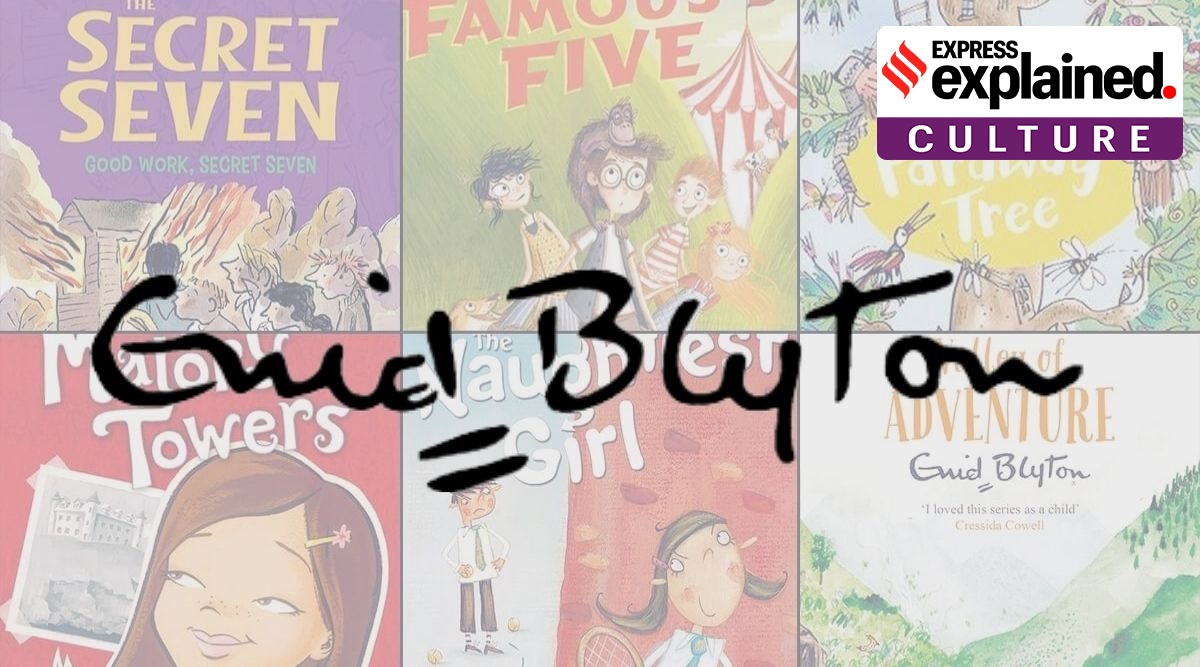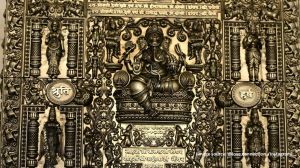Reporting on the death of children’s author Enid Blyton on November 29, 1968, the obituary in The Times, UK, records, “Miss Enid Blyton, who died yesterday, was perhaps the most successful and most controversial children’s author of the postwar period.”
Born on August 11, 1897, in East Dulwich, London, Enid Blyton, who would have been 125 today, remains one of the most popular children’s writers of all time. Yet, controversies over Blyton’s work — its intellectual worth, inherent racism and problematic views on gender — have been ongoing since her lifetime. Her books were removed from libraries across the world; her stories struck off syllabi. Between 1930 and 1950, the BBC refused to dramatise her work, describing her as a “tenacious second rater” in its internal correspondence.

Last year, as part of its attempt to re-evaluate controversial aspects of British culture, the UK-based charity English Heritage, which installs iconic blue plaques at sites that were once the working or living quarters of Britain’s culturati, updated the information associated with Blyton’s plaque: “Blyton’s work has been criticised during her lifetime and after for its racism, xenophobia and lack of literary merit. A 1966 Guardian article noted the racism ofThe Little Black Doll (1966), in which the doll of the title, Sambo, is only accepted by his owner once his ‘ugly black face’ is washed ‘clean’ by rain. In 1960, the publisher Macmillan refused to publish her storyThe Mystery That Never Was for what it called its ‘faint but unattractive touch of old-fashioned xenophobia’…” It also goes on to mention Blyton’s rejection by the British Royal Mint for commemoration on a 50 p coin in 2016 because “the advisory committee minutes record, she was ‘a racist, sexist, homophobe and not a very well-regarded writer’.”
What’s problematic?
The shortcomings of Blyton’s prodigious output has been a matter of debate over decades. Blyton’s problematic gender politics, most apparent, perhaps, in her iconic Famous Five series, neatly divides domains into feminine and masculine, in which scientist fathers remain closeted in studies, cheerful aunts and mothers produce “smashing” picnic hampers and teas; girls do the washing up after meals and are almost invariably feminine and in need of chaperoning; those who are tomboyish are aberrations — difficult, headstrong, and never as wise or mature as a “real” boy. Later woke interpretations have cast George, the star of the Famous Five series, as gender-fluid, but Blyton, by all indications, wasn’t thinking along those lines.
Historical context
Blyton wrote the bulk of her work between 1928 and 1960, a tumultuous time in world history. In the UK, even though the Representation of the People Act 1918 enfranchised all men over 21 and all women over 30 who met requisite property qualifications, it would be the 1928 Representation of the People (Equal Franchise) Act that would grant all men and women over the age of 21 to vote on equal terms. While World War II (1939-1945) would see more women joining the workforce, before that, for a majority of middle-class women, a life of domesticity was the norm.
It may, perhaps, be possible to contextualise Blyton’s views on gender roles in this light, but her tacit commentary on race was far more damaging and untenable even for her time — one that had seen two tumultuous World Wars against fascism. Yet, in almost all her books, “gypsies” and foreigners are cast in an unfavourable light — they are sinister, unfriendly, often dishonest and violent. As early as 1966, British Labour MP Lena Jeger had raised questions about the racism in The Little Black Doll. In her supremely popular series for younger children, Noddy, about a wooden toy who comes to live in Toyland, the antagonists are almost always golliwogs — a racial caricature of a Black rag doll, first introduced by cartoonist and author Florence Kate Upton in 1895. In book after book of the Noddy series, the golliwogs are shown as architects of mayhem and mischief and undeserving of kindness. In other series for older children, such as the Adventure one (Book I, Island of Adventure, 1944), or Famous Five, Black or dark-skinned characters are often portrayed as heartless or comical.
Popularity vs shortcomings
Story continues below this ad
While the late Eighties and early Nineties initiated a lot of purging of her texts — golliwogs made way for goblins, mentions of corporal punishments were ironed out as were references to rigid gender norms — Blyton’s popularity has remained undiminished. Her stories of adventure, the magical world of flying chairs and new lands atop enchanted trees are a throwback to the very life of uncomplicated simplicity that critics decry and readers continue to thrive on. In 2008, Blyton was voted as Britain’s favourite author, ahead of Roald Dahl and JK Rowling, the creator of the Harry Potter universe. Blyton’s books have sold 600 million copies and she remains a favourite with children in the subcontinent, including in India, even as authors such as Jamaica Kincaid, Michael Rosen and Rowling voice their discomfort with her views.
How then does one reconcile this unease with Blyton’s undeniably narrow world view with her continuing popularity? And, does the growing backlash against her necessitate consigning her prolific oeuvre of over 600 books to the back burner — the prescription of cancellation that modern culture warriors often advocate for historical wrongs?
The pragmatic answer is that while it is essential to recognise and highlight Blyton’s failures — and they remain unmitigated despite her vast sales — it is impossible to purge literary canons based on the vices of writers. What our revisionist reading can initiate are conversations around the fault lines, a recognition of the insular world that Blyton’s characters inhabit and how much more joy a less exclusionary and more diverse universe could bring.








































